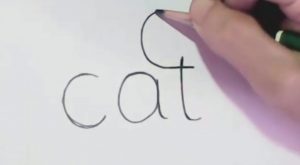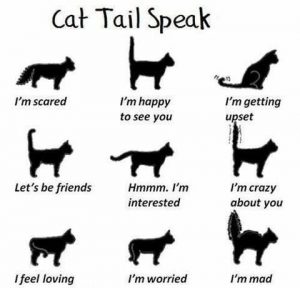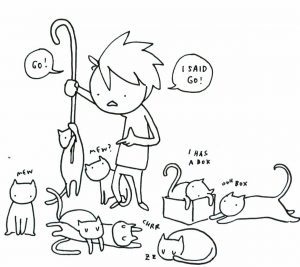Podcast: Play in new window | Download
 What big words, Sophie… ugh. Mental representation? huh?
What big words, Sophie… ugh. Mental representation? huh?
We could say safely, that until you can visualize what you say you want to do, you won’t do it, or you won’t do it well.
Procrastinators are especially weak in mental representation skills. that is probably why they procrastinate.
But it is important to understand what your words mean, the words you use.
I am not sure what understanding is. So I never use this word about myself. I either get it or I don’t. I either see it or I don’t. And something I cannot see how it connects to other things… but I don’t use my ‘mind’ to approach things.
 I have been thinking of activating ‘mental representation‘ the DNA capacity for myself…
I have been thinking of activating ‘mental representation‘ the DNA capacity for myself…
But Source/muscletesting said that I have it. So I looked again.
I saw that I DO mental representation mainly as a kinesthetic experience: I feel it. I walk around it, I walk inside it, I try to push some walls. The way I did it designing when I was an architect. I see with my feelings. Not emotions. no. Senses. feelings. Space, position, touch, temperature, energy…
I have two students who are mainly kinesthetic, like myself, and they do better than others in my course, the Playground. What they do in their lives has a lot of doing, touching, smelling, moving component. So I speak their language.
The most important element of a mental representation for me is to see, to feel the way things are connected, the way things interact, the way things move.. or don’t.
I have to translate every teaching to my language, or I won’t get it.
Most people teach/speak mind-language, or sometimes visual language… and those languages don’t connect well to kinesthetic.
Both languages have a huge tolerance to things to be left out, or being approximate, or imaginary…
Most things those teaching folks don’t even realize, because when you look at a picture, for example, it is hard to see that something is missing… unless, of course, it is obvious. But mostly it isn’t obvious.
 It is very difficult to do anything well that you don’t have the correct mental representation for.
It is very difficult to do anything well that you don’t have the correct mental representation for.
This is the place where T. Harv Ecker’s pithy saying is really valuable: When something isn’t working, there is something that you don’t know.
Harv’s story is really instructive. For a long time, till his 30’s, I think, he was an utter failure in business. He started many businesses and failed in every one of them.
Every one of those businesses could have succeeded… but something was missing. Something that other people saw, but he didn’t.
Frank’s Kern’s story fills in some things that could have been missing, in his Core Influence video.
Frank was already making a lot of money, but was utterly miserable. So he looked at what he wanted to have in his life, who he wanted to do business with, and he changed the pieces that made him miserable. He created a mental representation of his life. And then he saw what parts didn’t work for him.
That is utterly and totally missing for most people…
In the Raise your TLB class we did a little bit of this mental representation part…
…by looking to set criteria. excluding and including elements that are normally not mentioned when someone sets a direction.
It was not surprising on this level, that none of the people in the workshop had ever the thought: ‘I am important to me. So let me see what is important about the process to me. And about the destination… What is important to me.‘
It is not always easy to find what is the thing that is missing, or faulty, especially because we humans are not in the habit of searching for what’s missing in a systematic way.
 In my What’s Missing workshop that I run occasionally, more often than not, a lot of the missings are revealed, together with things, activities, expectations, attitudes, misconceptions that are there plugging up the works.
In my What’s Missing workshop that I run occasionally, more often than not, a lot of the missings are revealed, together with things, activities, expectations, attitudes, misconceptions that are there plugging up the works.
Some people want life to work, but they cannot bring much to it. They have no skills. They never learned any skills. BECAUSE they didn’t have a mental representation of what they wanted.
Others have only one thing missing thing that once they put that in the whole thing, life, starts to work. The train starts heading in a direction where both the destination and the journey is worth having.
This is the real value in distinctions: they are very very very precise, like a linchpin, like an axle, like the thing around everything can turn.
Without distinctions you cannot see how to change the direction of the train of your life.
You being important to yourself is a distinction. When you don’t have it, you actually never look what is important to you.
You have some vague notions, and ultimately live a life you don’t love.
It is like cooking with vague notions. You think you can put every good thing in a dish and it will be good. I see it on youtube, that is what many people actually do. ugh. But the resulting dish will be barely edible for a pig…
And that is the life of a lot of people. No distinction, no mental representation, no clarity. Ugh.
If you want to start this journey to clarity, looking at everything through the idea that you are important to you, is a perfect starting point.
And our TLB class is a good thing to start with. Because I am certain that you don’t know what life is like, what is different, what is important when YOU are IMPORTANT TO YOU.
PS: One of the most important invisibles is ATTITUDE. It is so below the visible, that people don’t even know what it is. They have labels for attitude, but the label is not the thing! I have 1300 articles on attitudes… doesn’t that strike you as significant?
PPS: I don’t offer activating your mental representation DNA capacity until I can see that you NEED IT, and will keep it on. Creating projects (not doing them, creating them!) is the pathway to that. Consider that mental representation could be called: imagine it.
